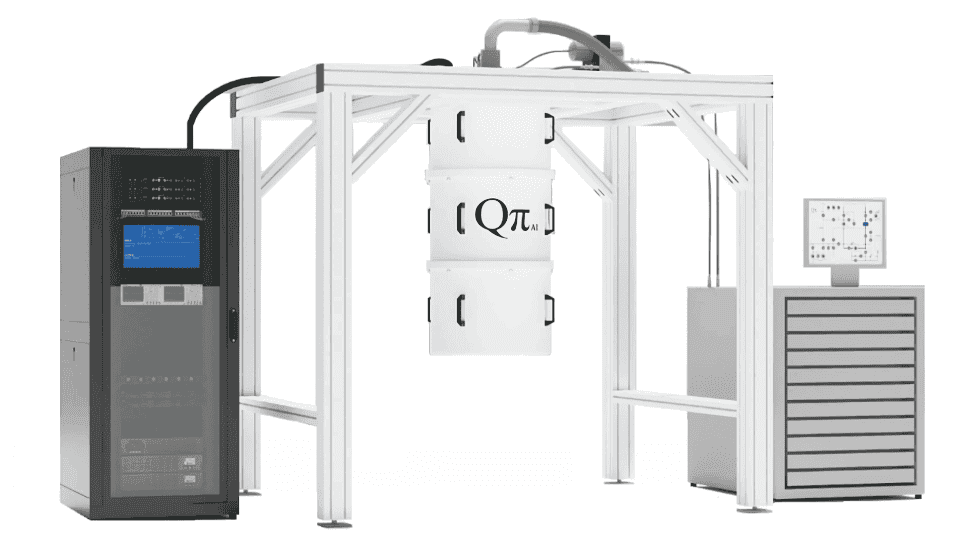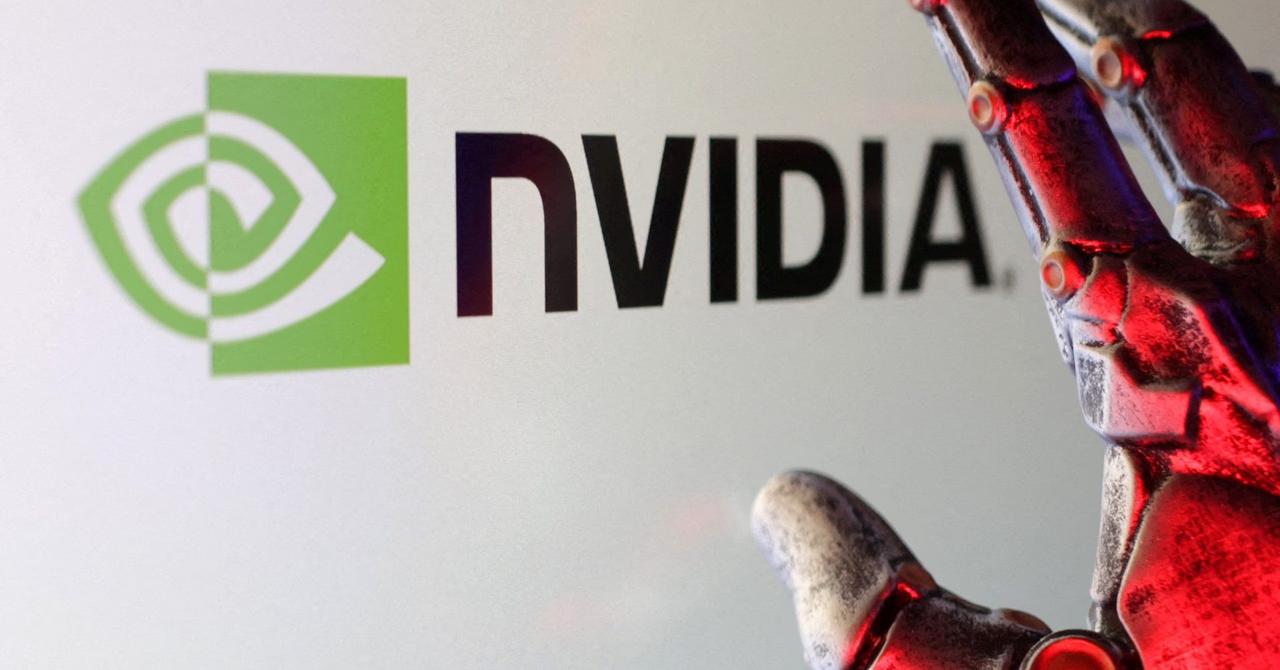Phasecraft Secures $34M to Accelerate Practical Quantum Computing Solutions
2 Sources
2 Sources
[1]
Phasecraft secures $34M to accelerate practical quantum computing solutions - SiliconANGLE
Phasecraft secures $34M to accelerate practical quantum computing solutions Quantum algorithm company Phasecraft Ltd. announced today that it has raised $34 million in new funding to accelerate its work to transform quantum computing's theoretical promise into practical applications. Founded in 2019, Phasecraft focuses on making quantum computing useful sooner by bridging the gap between today's noisy, intermediate-scale quantum devices and future large-scale systems. Differing from other firms that rely on the eventual arrival of fault-tolerant quantum computers, Phasecraft says, it's developing ultra-efficient algorithms that allow current imperfect machines to deliver meaningful results in real-world settings. Notably, the company doesn't focus on one platform or possible solution but instead takes a hardware-agnostic approach. Doing so, it says, delivers compatibility with multiple platforms and maximizes the chances of early commercial adoption. It works across different industries where quantum computing has the potential to deliver a measurable impact, such as materials discovery, chemistry, energy systems and logistics optimization. Phasecraft methodology -- pairing quantum devices with classical computing -- delivers hybrid solutions that can simulate complex materials, optimize energy grids and even tackle problems in biological research. The algorithms are already showing promise in making material simulations millions of times more efficient, which could accelerate the design of new solar cells, catalysts or medicines. The company works with various hardware providers, including Google LLC's Quantum AI, IBM Corp., Quantinuum Ltd. and QuEra Computing Inc., which allows it to test and refine its algorithms on advanced machines and push towards practical applications. Phasecraft also works with partners such as Johnson Matthey plc, Oxford Photovoltaics Ltd., National Energy System Operator Ltd. and BT Group plc to co-develop solutions tailored to their needs. The company's research-and-development approach draws on novel insights from theoretical physics, computer science and extensive numerical simulations. Areas of exploration include drug discovery, where quantum simulations could shorten the process of understanding molecular interactions and energy resilience, where optimized networks could improve efficiency and sustainability. "Our algorithms are delivering meaningful results now, whether it's simulating the physics of complex materials or optimizing the structure of a large energy network, while our partnerships with the world's top quantum hardware providers increase the impact our algorithms will have for commercial applications," said co-founder and Chief Executive Ashley Montanaro. The Series B round was co-led by Plural Platform, Playground Global and Novo Holdings A/S Quantum Fund, with LocalGlobe Management Ltd., Albion Capital Group LLP and Parkwalk Advisors Ltd. also participating. "Phasecraft is revolutionizing the quantum landscape in ways that were previously thought impossible," said Ian Hogarth, a partner at Plural. "Its hardware-agnostic approach means it's been able to work with several of the world's most powerful computing devices, creating algorithms that are more efficient by factors of millions and that are now helping to solve real-world problems like material discovery and the optimization of our energy networks."
[2]
UK's Phasecraft raises $34m to accelerate quantum algorithms
The round was co-led by Plural, Playground Global and Novo Holdings' Quantum Fund. UK-based quantum algorithms start-up Phasecraft has raised $34m in a Series B funding round to accelerate R&D to create algorithms that overcome limitations of today's Noisy Intermediate Scale Quantum devices (NISQ). The round was co-led by Plural, existing investor Playground Global, and Novo Holdings' Quantum Fund in its first direct quantum software investment. The round also included participation from existing investors LocalGlobe, AlbionVC and Parkwalk Advisors. The new funding brings the company's total raise to more than $50m. Phasecraft - a 2019 University College London and University of Bristol spin-out - has already partnered up with leaders in this industry, including Google Quantum AI, IBM, Quantinuum and QuEra to develop these "high-efficiency" algorithms. Acccording to the start-up, quantum computing hardware and software can only become commercially viable with "ultra-efficient" algorithms. The company explains that its "quantum-enhanced approach" uses quantum computing as a partner to standard computing to overcome its limitations and enables today's NISQ to tackle previously inaccessible problems, rather than waiting for perfect hardware. This brings quantum applications to industry sooner than anticipated, Phasecraft adds. Phasecraft further explains that its work addresses areas such as material science, by making simulating materials "millions of times more efficient", biological research by applying quantum computing to key biochemical processes relevant to drug development for genetic conditions and energy resilience by optimising energy networks. To this end, Phasecraft is also working with end-users, such as specialty materials developer Johnson Matthey, solar cell developer Oxford PV, the UK's National Energy System Operator and telecommunications provider BT. "We're actively creating quantum advantage at Phasecraft," said Prof Ashley Montanaro, the co-founder and CEO of Phasecraft. "Our algorithms are delivering meaningful results now, whether it's simulating the physics of complex materials or optimising the structure of a large energy network, whilst our partnerships with the world's top quantum hardware providers increase the impact our algorithms will have for commercial applications." This new funding follows Phasecraft's expansion into the US. In addition, the company is also looking to hire a postdoctoral-level quantum software researcher. Ian Hogarth, a partner at Plural and Phasecraft's chairperson, said, "Phasecraft is revolutionising the quantum landscape in ways that were previously thought impossible. "It's hardware-agnostic approach means it's been able to work with several of the world's most powerful computing devices, creating algorithms that are more efficient by factors of millions and that are now helping to solve real-world problems like material discovery and the optimisation of our energy networks." 2025 is the International Year of Quantum Science and Technology, and industry leader IBM recently announced that it is partnering with chip-making giant AMD to build "next-generation" computing architecture by combining quantum computers and high-performance computing. The two companies, by combining their expertise, aim to create a hybrid infrastructure where different components of a single problem could be tackled in ways efficiently. Don't miss out on the knowledge you need to succeed. Sign up for the Daily Brief, Silicon Republic's digest of need-to-know sci-tech news.
Share
Share
Copy Link
Quantum algorithm company Phasecraft raises $34 million in Series B funding to advance practical quantum computing applications, focusing on developing efficient algorithms for current quantum devices.
Phasecraft Secures Significant Funding for Quantum Computing Advancements
Phasecraft Ltd., a UK-based quantum algorithm company, has successfully raised $34 million in a Series B funding round to accelerate the development of practical quantum computing solutions
1
2
. This latest investment brings the company's total funding to over $50 million, highlighting the growing interest in quantum computing technologies2
.Innovative Approach to Quantum Computing
Founded in 2019 as a spin-out from University College London and the University of Bristol, Phasecraft distinguishes itself by focusing on making quantum computing useful in the near term
1
. Unlike companies waiting for fault-tolerant quantum computers, Phasecraft is developing ultra-efficient algorithms that allow current noisy, intermediate-scale quantum (NISQ) devices to deliver meaningful results in real-world settings1
.
Source: Silicon Republic
The company's methodology pairs quantum devices with classical computing to create hybrid solutions capable of simulating complex materials, optimizing energy grids, and addressing problems in biological research
1
. This approach has already shown promise in making material simulations millions of times more efficient, which could accelerate the design of new solar cells, catalysts, or medicines1
2
.Strategic Partnerships and Hardware-Agnostic Approach
Phasecraft's hardware-agnostic strategy allows for compatibility with multiple platforms, maximizing the chances of early commercial adoption
1
. The company collaborates with various quantum hardware providers, including Google Quantum AI, IBM, Quantinuum, and QuEra Computing1
2
. These partnerships enable Phasecraft to test and refine its algorithms on advanced machines, pushing towards practical applications.Additionally, Phasecraft works with industry partners such as Johnson Matthey, Oxford Photovoltaics, National Energy System Operator, and BT Group to co-develop tailored solutions for specific needs
1
2
. This collaborative approach ensures that the company's innovations address real-world challenges across different sectors.Related Stories
Funding and Investor Support
The Series B round was co-led by Plural Platform, Playground Global, and Novo Holdings A/S Quantum Fund, with participation from LocalGlobe Management Ltd., Albion Capital Group LLP, and Parkwalk Advisors Ltd
1
2
. Ian Hogarth, a partner at Plural and Phasecraft's chairperson, praised the company's revolutionary approach to the quantum landscape1
2
.
Source: SiliconANGLE
Future Prospects and Industry Impact
As Phasecraft expands its operations, including a recent move into the US market, the company is actively hiring to strengthen its research team
2
. The funding will support accelerated R&D efforts to create algorithms that overcome the limitations of current NISQ devices2
.Prof. Ashley Montanaro, co-founder and CEO of Phasecraft, emphasized the company's progress: "Our algorithms are delivering meaningful results now, whether it's simulating the physics of complex materials or optimizing the structure of a large energy network"
1
2
.With 2025 designated as the International Year of Quantum Science and Technology, Phasecraft's advancements come at a crucial time for the industry
2
. As major players like IBM and AMD collaborate on hybrid quantum-classical computing architectures, Phasecraft's work in bridging the gap between theoretical quantum potential and practical applications positions the company at the forefront of this rapidly evolving field2
.References
Summarized by
Navi
[1]
[2]
Related Stories
Recent Highlights
1
ByteDance's Seedance 2.0 AI video generator triggers copyright infringement battle with Hollywood
Policy and Regulation

2
Demis Hassabis predicts AGI in 5-8 years, sees new golden era transforming medicine and science
Technology

3
Nvidia and Meta forge massive chip deal as computing power demands reshape AI infrastructure
Technology








